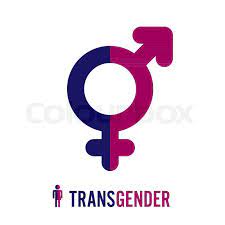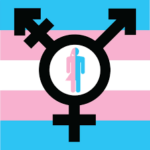Understanding the term "Trans Femme" goes far beyond just a label; it encapsulates a unique journey of self-discovery and expression. In the broader context of gender identity, "Trans Femme" refers to individuals who were assigned male at birth but identify and express themselves primarily with feminine aspects. This article dives deep into what it means to be a Trans Femme, exploring the complexities of identity, the importance of representation, and the significance of community support.
What Does "Trans Femme" Really Mean Anyway?
At its core, "Trans Femme" is a term that signifies a specific intersection of gender identity and expression. It describes individuals who transition from male to female or identify more strongly with femininity, regardless of whether they pursue medical transition. This identity can encompass a range of experiences, from those who may adopt a feminine presentation while retaining aspects of their assigned gender to those who fully embrace a feminine identity. Crucially, it’s essential to recognize that being a Trans Femme can vary widely among individuals; no two journeys are the same.What To Take For Low Estrogen
The term "femme" itself is rich with connotations, often associated with a strong sense of femininity and empowerment. Many Trans Femmes reclaim the term to express their individuality and challenge traditional gender norms. The journey toward embracing the "femme" identity often involves not just a shift in outward appearance but also a deep internal exploration of self-worth, societal expectations, and emotional resilience.
The Journey of a Trans Femme: Understanding Identity
The path to self-acceptance as a Trans Femme can be both liberating and challenging. Many individuals begin this journey in their formative years, grappling with feelings of dysphoria and societal expectations. For some, this realization involves a gradual understanding of their gender identity, while others may experience a more sudden awakening. This journey often includes seeking out communities that affirm their identity, which can be a crucial step toward embracing their true selves.
Additionally, coming out as a Trans Femme is a deeply personal process, often fraught with fears of rejection, discrimination, and misunderstanding. Support from friends, family, and peers can make a significant difference. In many cases, finding safe spaces within LGBTQ+ communities provides the encouragement and validation necessary for these individuals to thrive in their identity.
How Trans Femmes Embrace Their Feminine Expression
Feminine expression for Trans Femmes can take many forms, and it isn’t limited to clothing or makeup. Many embrace a holistic approach, incorporating mannerisms, interests, and activities traditionally associated with femininity. This might include everything from fashion choices to voice training or exploring feminine hobbies, all of which contribute to a fuller expression of their identity. Ultimately, the expression of femininity is highly personal and unique to each individual.
Moreover, the act of embracing femininity can be an empowering defiance against societal norms that dictate how gender should be expressed. By taking ownership of their feminine expression, Trans Femmes challenge the binary constructs of gender and pave the way for more inclusive understandings of identity. This empowerment is often a source of pride and strength within Trans Femme communities.
Common Misconceptions About Trans Femme Experiences
Despite increasing awareness of transgender identities, many misconceptions about Trans Femmes persist. One common stereotype is that Trans Femmes must undergo medical procedures, like surgery or hormone therapy, to validate their identity. However, it’s vital to emphasize that transitioning is a personal choice and not a requirement for someone to identify as a Trans Femme. The legitimacy of one’s gender identity should never be tied to medical interventions.
Another misconception is that all Trans Femmes conform to traditional notions of femininity. In reality, the expression of femininity can be diverse and varied. Some may embrace hyper-feminine aesthetics, while others may opt for a more androgynous look. It’s essential to recognize that every individual’s experience is unique, and the spectrum of femininity is broad enough to include many forms of expression.
The Importance of Pronouns for Trans Femme Individuals
Pronouns serve as an essential aspect of identity and respect for Trans Femme individuals. Using the correct pronouns—often she/her for Trans Femmes—affirms their identity and fosters a sense of belonging. Misgendering someone can lead to feelings of invalidation and dysphoria, making it crucial for everyone to pay attention to and respect each person’s chosen pronouns.
Moreover, taking the time to learn and use the correct pronouns cultivates an inclusive environment. It shows a willingness to understand and support Trans Femme identities, which can significantly impact their mental health and overall well-being. In conversations, it’s always a good practice to ask someone their pronouns if you’re unsure, demonstrating respect for their identity.
Trans Femme Representation in Media and Culture
Representation of Trans Femmes in media and culture has evolved, but gaps remain. Historically, Trans Femme characters have often been portrayed through a narrow lens, focusing on stereotypes or sensationalism. However, a growing number of films, shows, and books are beginning to offer nuanced and authentic representations that resonate with Trans Femme experiences. These portrayals contribute to greater visibility, helping to challenge stigma and promote understanding.
Additionally, when Trans Femmes take on roles behind the camera—whether as writers, directors, or producers—stories are told in ways that resonate more authentically with their experiences. This shift is crucial, as it allows for a more comprehensive understanding of Trans Femme lives and struggles, ultimately leading to a more empathetic society. Celebrating this representation is a step toward dismantling harmful stereotypes and fostering inclusivity.
Resources for Supporting Trans Femme Communities
Supporting Trans Femme communities involves educating oneself and advocating for their rights. A plethora of resources—both online and offline—exist to help individuals better understand the experiences and challenges faced by Trans Femmes. Organizations like the Human Rights Campaign and Trans Lifeline offer educational materials, support networks, and advocacy initiatives aimed at uplifting Trans Femme voices.
Furthermore, engaging with local LGBTQ+ centers can provide resources for community involvement, workshops, and events that promote understanding and support for Trans Femme individuals. By actively participating in these networks, allies can help create safe spaces where Trans Femmes feel seen, respected, and integrated into society.
Celebrating Trans Femme Voices: Stories to Inspire You
The uniqueness of Trans Femme experiences is highlighted through the myriad of stories that emerge from this community. From personal accounts of triumph over adversity to tales of self-discovery and empowerment, these narratives inspire others to embrace their identities. Platforms like social media and blogs have allowed individuals to share their journeys, creating a tapestry of experiences that resonate with many.
Celebrating Trans Femme voices also means amplifying their stories in broader conversations about gender and identity. Recognizing and honoring the achievements of Trans Femmes in various fields—be it art, activism, or science—helps highlight the diversity of their contributions to society. Every story shared is a step toward acceptance and understanding, paving the way for future generations to live authentically.
In conclusion, the concept of "Trans Femme" encapsulates a rich tapestry of experiences and identities that deserve recognition and celebration. Understanding Trans Femme individuals requires empathy, open-mindedness, and a commitment to support. As society continues to evolve, it’s vital to amplify Trans Femme voices, challenge misconceptions, and foster inclusive environments. By doing so, we honor the journeys of those who identify as Trans Femme and contribute to a more accepting world for everyone.


